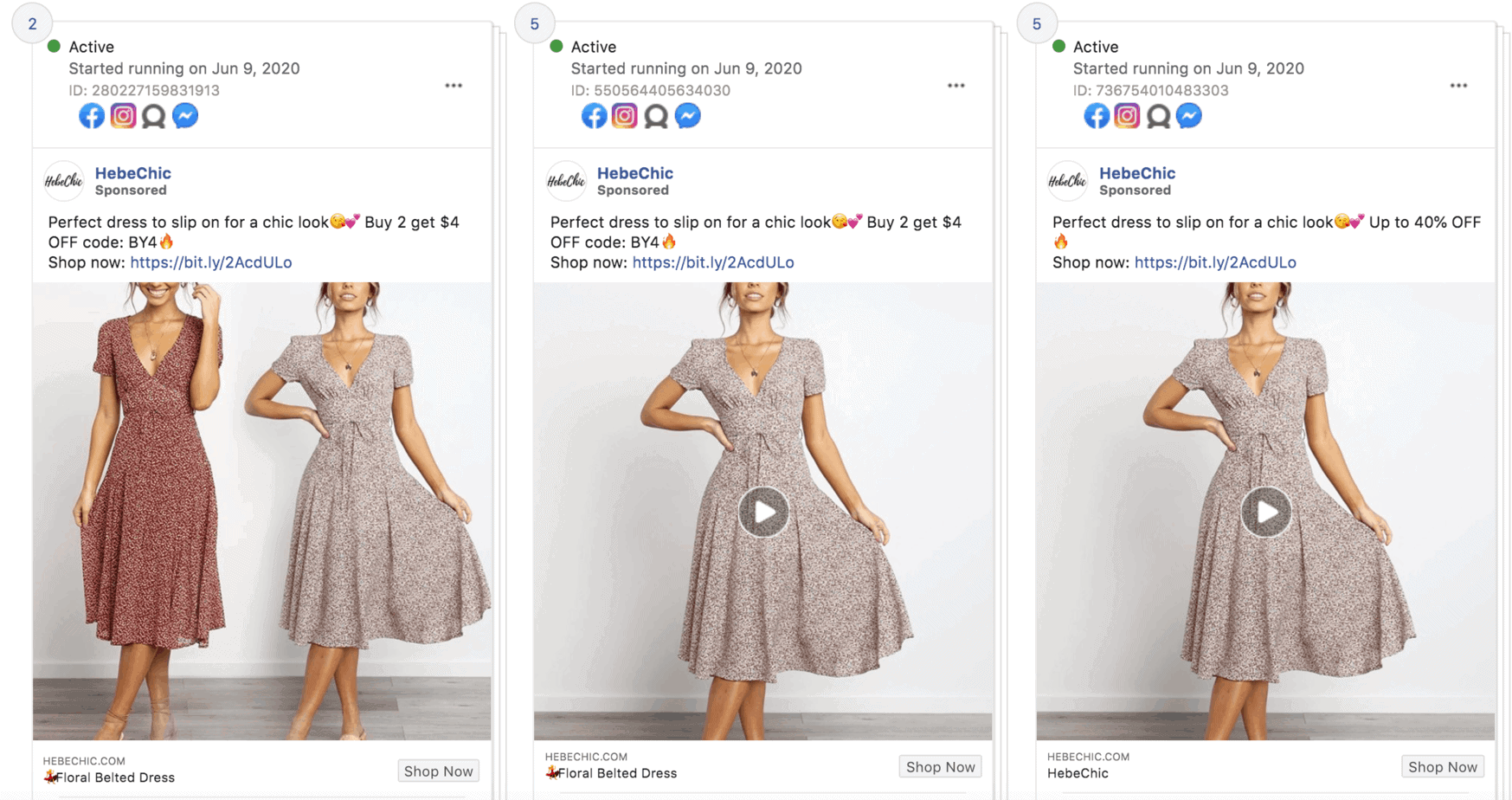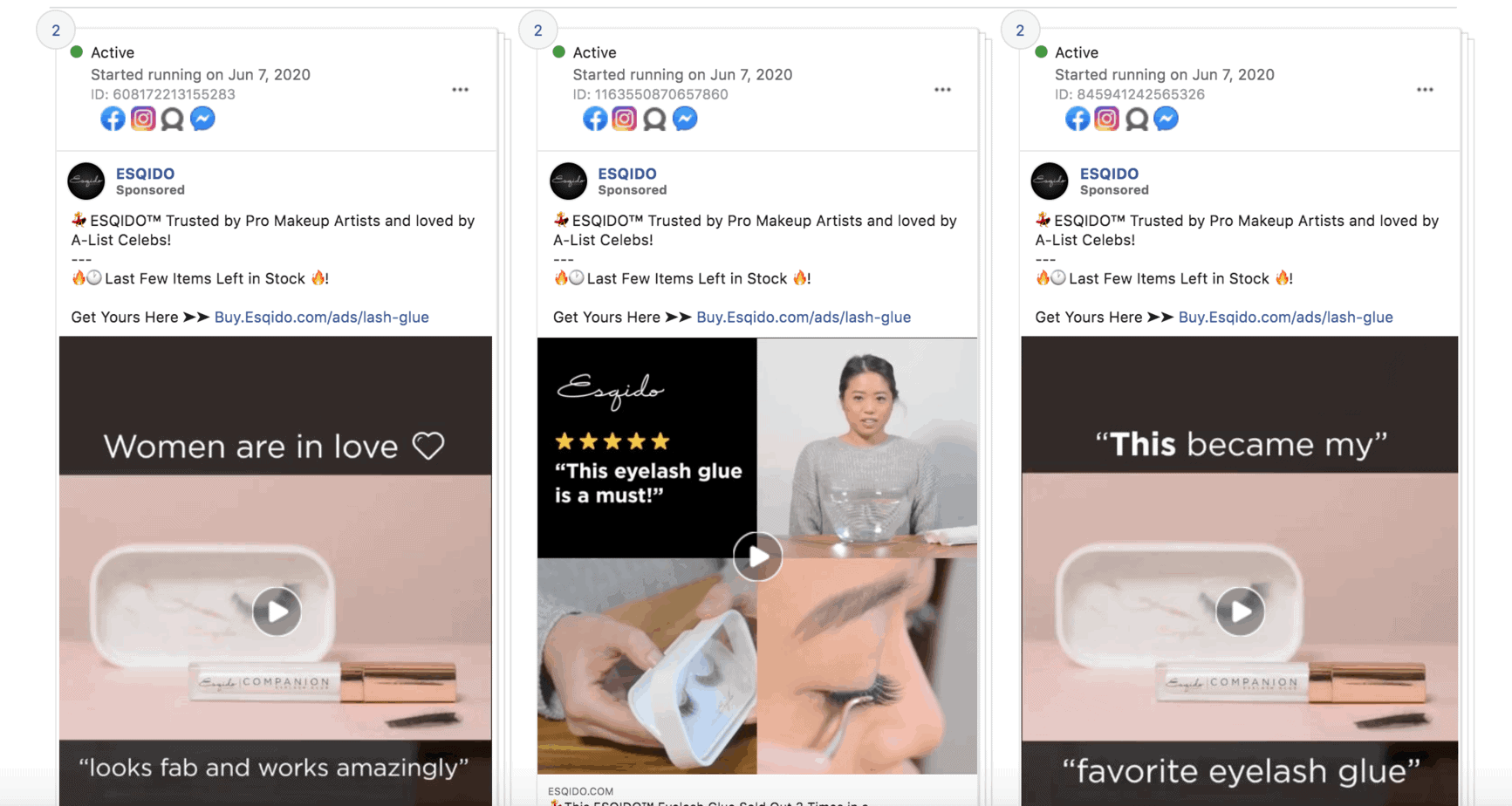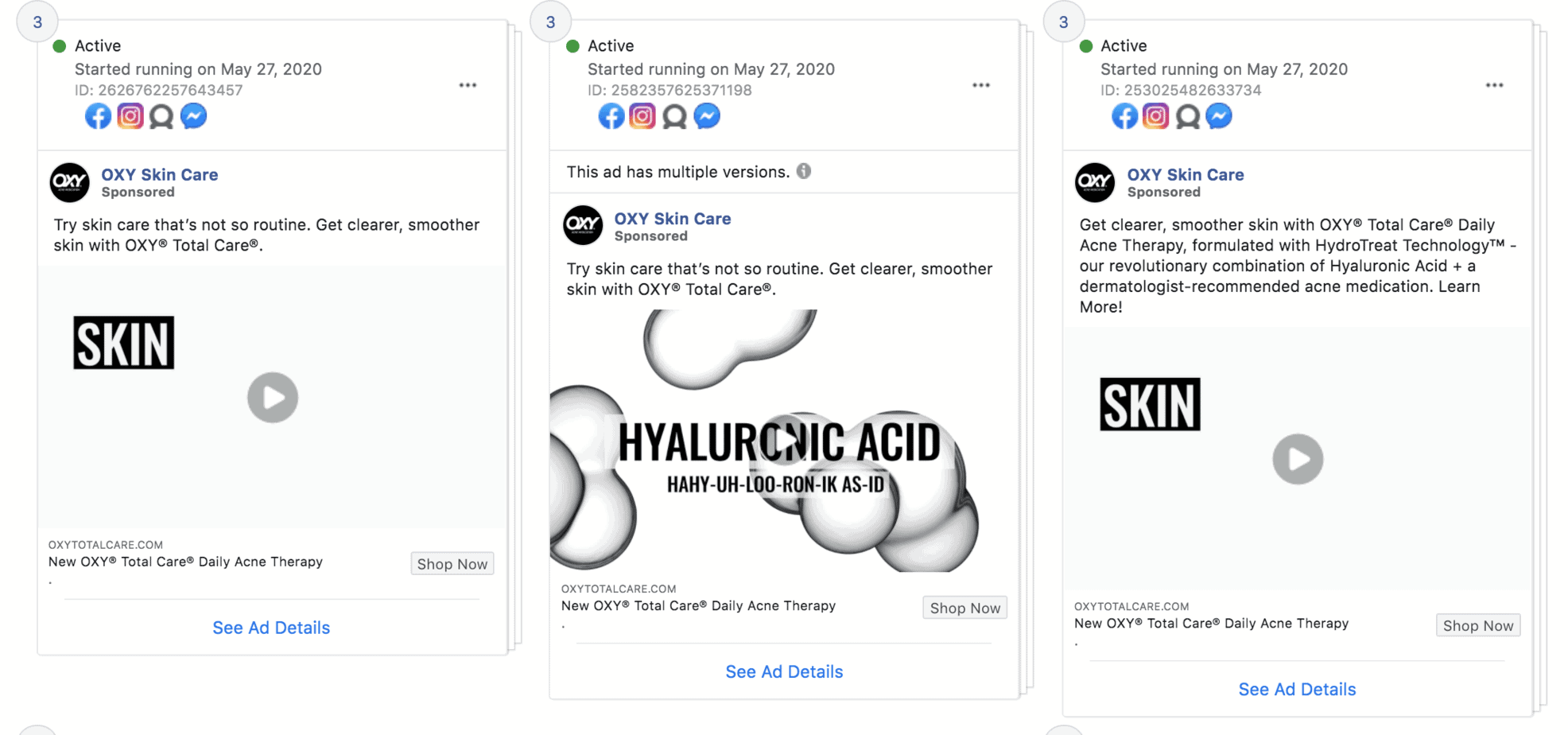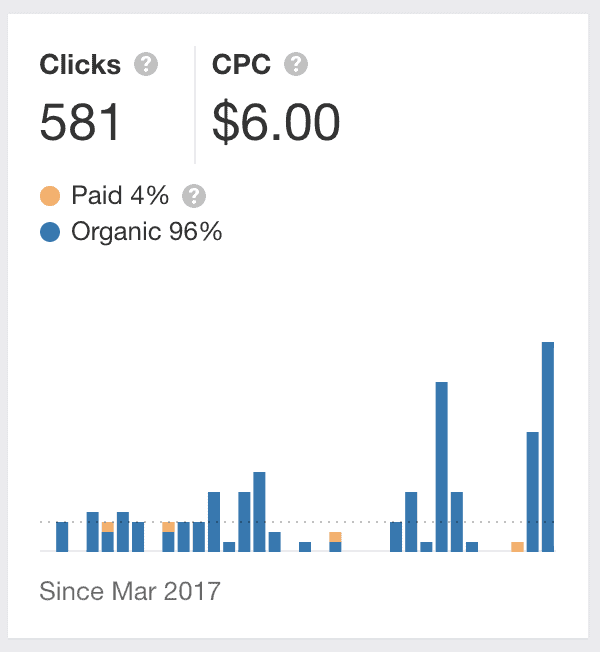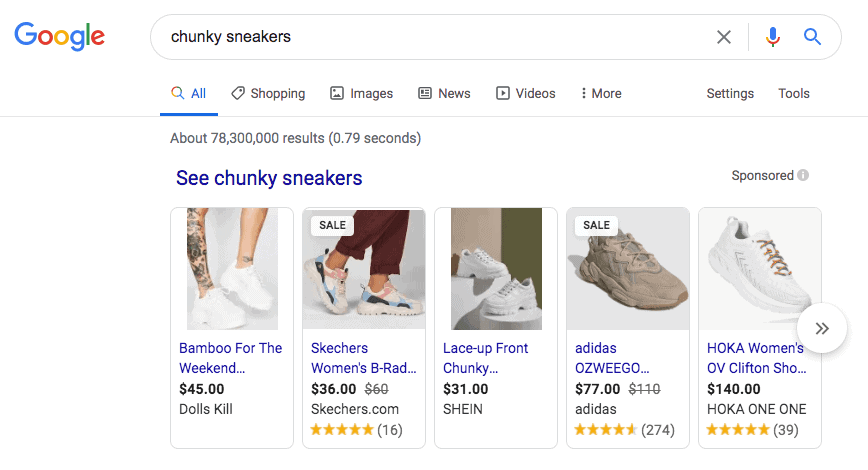eCommerce Advertising
Table of Contents
The eCommerce industry is rapidly expanding. The United States saw 263 million digital buyers in 2019—which is around 80% of the country’s population!
Suffice it to say; more customers are doing their shopping online than ever. As the owner of a small eCommerce business, you understand how competitive this has made the industry.
To make your company stand out in such a competitive industry, you need an innovative eCommerce ads campaign.
Before getting started, though, there are a couple of things to keep in mind when making your campaign.
First, it is important to know the advertising policies that may impact what ads you can or can’t use. For example, Google Ads has a policy regarding counterfeit goods, meaning any ad falsely promoting faux products as genuine brands are prohibited. Other policies prohibit ads promoting dangerous products and services. Ignoring these policies can result in your ad receiving a policy violation.
Another factor to consider is advertising costs. As the industry continues to expand, consumers have a wide variety of choices when it comes to online shopping. This abundance of choice leads to higher costs for eCommerce advertising.
On average, your business might pay $10-$12 per click for an eCommerce keyword. Let’s assume your average conversion rate is 2%—meaning that, out of every 100 people who visit your site, 2 become new customers. With this rate, you’ll end up paying $500—$600 to acquire one new customer.
By now, you might feel ready to explore alternatives to eCommerce advertising. If so, jump to that section or head on over to our eCommerce SEO page for more information.
Regardless, you can keep reading to see real examples of eCommerce Google and Facebook ads as well as example keywords, their costs, and more.
Examples of eCommerce Google Ads
The goal of a successful eCommerce ad is to increase your conversions. Interestingly enough, when an ad is successful in converting new customers, that success can be traced back to Google Ads.
What makes Google Ads so successful for eCommerce businesses? When a potential customer is searching for products, Google Ads puts your products in front of them when they want them the most.
Below, we’ve taken a look at several examples of eCommerce Google Ads and explained why they are successful.

Why it works: One thing to notice about this ad is that it includes links to other pages on this company’s website. So, if a customer wants to read their FAQ, they can easily navigate to it through this ad.

Why it works: This ad has a great offer of 10% off your first order. It’s hard to resist an offer like that, especially when it comes to stylish clothes!

Why it works: Like our previous two examples, this ad also includes site links below the copy. Additionally, it has an appealing offer for trading in phones, which also includes free shipping.
How Much Do eCommerce Keywords Cost on Google Ads?
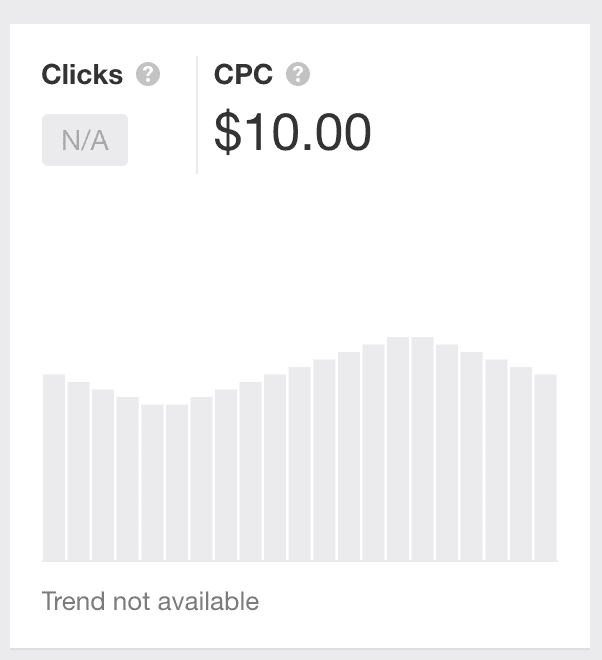 Here, we’ve put together 10 of the best eCommerce keywords on Google along with their average cost per click:
Here, we’ve put together 10 of the best eCommerce keywords on Google along with their average cost per click:
- online retail – $6.00 / click
- best online retail – $10.00 / click
- what are the best online shopping sites – $2.50 / click
- eCommerce online shopping / $45.00 click
- online consignment store – $2.00 / click
- best online glasses store – $4.50 / click
- online thrift store furniture – $2.00 / click
- cheap online shopping – $1.50 / click
- online fabric store coupon – $1.70 / click
- retail eCommerce websites – $45.00 / click
As this list illustrates, the cost for keywords targeting various eCommerce topics can vary. Certain keywords cost as little as $2, while more expensive keywords can cost $45. Typically, the keywords you’ll see will cost an average of $10-$12.
What does that mean for your advertising costs? Essentially, each time someone clicks on your ad, you will pay Google the cost of the keyword you’re targeting.
Facebook Ads For eCommerce
At this point, you might be wondering: are there alternatives for paid advertising through Google Ads?
The answer is: yes! Facebook ads, especially for eCommerce, is another option to consider for paid advertising efforts.
The first example we’ll look at is from an eCommerce business that sells fashion products:
Why it works: When selling clothes online, it’s pretty beneficial to show your customers what those products look like. Plus, these examples also offer a coupon code for the dresses featured in the ad.
This example looks at a cosmetics eCommerce company with ads that feature their eyelash care products:
Why it works: These ads are visually appealing in how they show the customer the product and how they incorporate videos of the products in use.
Why it works: These ads provide a customer with some genuinely useful information about their skincare routine. By connecting with a customer through helpful information, these ads naturally draw a customer to their products.
eCommerce Advertising Alternatives: SEO (Search Engine Optimization)
Wondering what benefits you might receive from an SEO (search engine optimization) eCommerce ads campaign?
The three main benefits to consider with SEO campaigns are known as the three C’s: Costs, Clicks, and Conversions.
Let’s take a look at what kind of traffic a keyword such as “online retail” receives when searching it on Google.
As the image illustrates, 96% of search traffic for this keyword goes to organic content. What does that mean? It means that only the remaining 4% of search traffic is clicking on sponsored ad content.
What this gap in organic and paid search traffic shows is that many users tend to prefer organic content when searching for eCommerce shops.
Another factor to consider is Google Shopping. Through Google Shopping, merchants can create shopping campaigns to promote their products online. While this sounds similar to Google Ads, there is a key difference to take note of.
This difference can be seen in this example search for products relating to the term “chunky sneakers” on Google.
Instead of showing the sponsored ads that we saw in our Google Ads examples, this keyword shows sponsored results that are product listings. Additionally, there are no sponsored ads that follow this carousel of products; instead, Google shows these ads first instead of other sponsored content. The rest of the results for this page start with organic content.
In the end, both Google and users are more likely to trust organic results over sponsored results when searching for eCommerce keywords. This preference for organic results also has an impact on your advertising costs.
Want to see how well your website is optimized for SEO? Run a free SEO audit to find out.
The Big Question: How Do eCommerce Businesses Engage With More Customers?
By and large, the overall goal for any eCommerce advertising campaign is to engage with more customers. Expanding your customer base leads to more growth for your business.
Knowing the best way to achieve that depends on what works for your business. Should you make a Google Ads advertising campaign? What about Facebook ads for eCommerce? Can SEO benefit my ad campaign the most?
We may be biased, but if we were in your shoes as the owner of an eCommerce business, we’d likely invest in SEO.
The reason why? We believe that search engine optimization is the best way for a company to create sustainable and genuine growth.
This belief is especially true when it comes to small businesses in competitive industries. With sustainable growth through SEO, these small businesses can go up against big-name competitors.
So, if you want to invest in growing your business while lowering your advertising costs, then contact Markitors and schedule a consultation.
To get started, we schedule a 15-minute call with you to learn more about what you do. Next, we conduct a free SEO audit on your website, your major competitors, and any relevant keywords.
Once we analyze this data, we determine if it makes sense for us to work together. When it’s clear that it’s a good fit, we then propose one of our SEO solutions that align with your vision.


